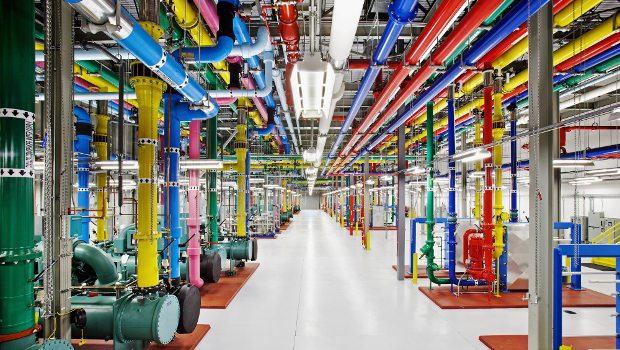
Data centres an easy target for criticism
It would be fair to say that the data centre sector has had a mixed few months. From being classed as strategic infrastructure to being denounced as power bingers that threaten the integrity of the electricity grid, the data centre is, in our national drama, somehow at once both the star of the show and the villain of the piece.
The criticism is largely political, and, truthfully, there is nothing wrong with this: after all, countries are free to decide how resources should be divvied-up. Ireland’s recent, albeit obviously grudging, acceptance of a rise in the minimum rate of corporation tax is both a recognition that the country had made strategic trade-offs in the past and a signal that a new map will be needed for our increasingly electronic territory.
The country is free to, and indeed should, develop an industrial policy fit for the future and no business – whether they be data centres, finance or farming – should get a free ride. Nonetheless, it is hard to escape the feeling that data centres are being ritually flayed in order to expiate our digital sins.
Critics routinely depict data centres as a misallocation of resources, but this is a short-sighted view. True, data centres in and of themselves are not engines of job creation, but then again neither are factories or farms these days.
As Séamus Dunne, managing director of Interxion put it, data centres run the operations of businesses and government, and these create jobs.
“Data centres are becoming the next public utility,” he says. “One thing that’s very interesting, but that a lot of people don’t realise, is that it’s not us using the electricity. It’s us providing it to customers who are household names and who employ thousands of people. It’s their IT and we run it.”
This is certainly worth thinking about in the context of the few natural advantages Ireland enjoys alongside use of the English language and, for once, its climate.
Heritage
Well-positioned in the north Atlantic, Ireland acts as a bridge between the EU, the United States and the United Kingdom, with four subsea cables connecting across the ocean and a further eight to Britain, connecting on again to France, the Netherlands and Belgium. In this regard, the country’s strategic location cannot be overstated.
It has a poetic side, too: Ireland was the European landing point for the first transatlantic telegraph cable, inaugurated on 16 August 1858.
The Internet, looked at in a certain light, really is a “series of tubes”, as former US senator Ted Sevens once said, albeit in a different context. This, in fact, is close to the meat of the matter. While gawping into our screens and dreaming of – or having nightmares about – the metaverse, it is easy to imagine ourselves as disembodied beings living dematerialised lives. However, behind every bit is an atom, whether it is a sector on a hard drive, a cell on an SSD or the materials and embodied energy that make up the machines we rely on. Singling out data centres, or even just data, misses the point.
The criticism of data centres that most caught the public mood was the Green one. Data centres use power, it is true, though fears of overuse ignore the possibilities of data centres themselves contributing, both in the form of district heating and taking matters into their own hands with on-site renewables.
Indeed, the power issue is not one caused by data centres, it is a problem with the grid as well as with Ireland’s failure to generate enough renewable energy (let alone even countenance nuclear power except through piggybacking France). For instance, the country has also been slow to engage in international renewable energy auctions.
In the end, the issue is about a lot more than just data centres, it is about Ireland’s very role in the world.
Notably, chip giant Intel is seeking to expand European operations and many in the industry believe it will look beyond these shores due to difficulties in obtaining planning and questions around power. If this happens then we shall have no-one to blame but ourselves. Perhaps now is the time for a more sophisticated debate about how IT and computing can contribute to jobs, growth and the country’s place in a rapidly-changing world.








Subscribers 0
Fans 0
Followers 0
Followers